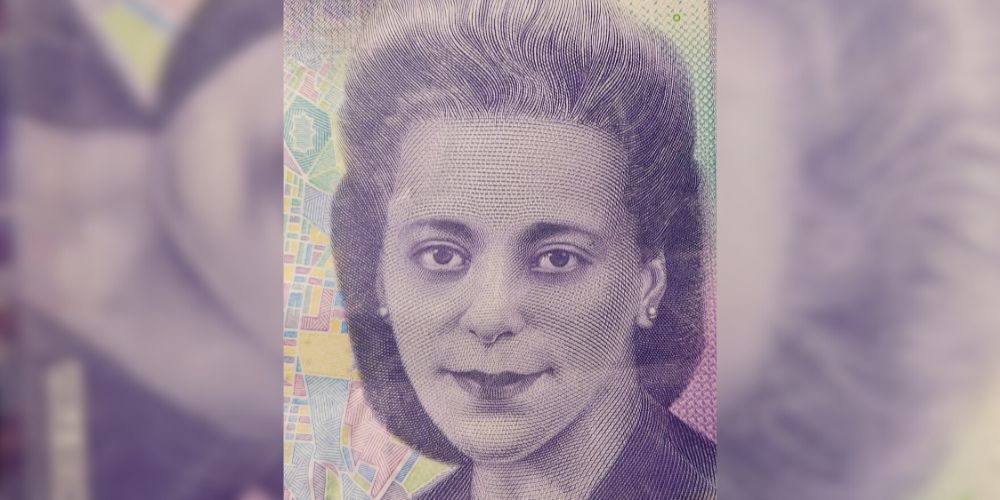Viola Desmond Davis: The Power Of Individual Courage

Viola Desmond (née Davis) was a Black Canadian businesswoman and activist. Her spirit and unwavering commitment to justice had a significant impact on society.
Born on July 6, 1914, in Halifax, Nova Scotia, Viola defied racial segregation in Canada during the 1940s, challenging discriminatory practices with a quiet yet resolute determination.
Her act of defiance at a segregated movie theater in 1946 was an inspiration in the struggle for civil rights in Canada.
While the Black community tried to help with her appeal, the charges stayed on her record until long after her death in 1965. But Viola's steadfast refusal to accept injustice and her subsequent legal battle became a catalyst for change.
RELATED: Learn about more Black Canadians who helped shape Canada’s heritage, culture, and identity …
Viola Davis’ Early Life
Viola was 1 of 10 children born to James Albert Davis and Gewndolin Irene Davis (née Johnson). Her family was highly regarded in Halifax’s Black Community where her father was an barber.
In her youth, Viola aspired to become an independent business woman. She worked at segregated schools for Black students before studying at the Field Beauty Culture School in Montreal. She eventually travelled to Atlantic City and New York to finish her training. When she returned to Halifax, she opened a salon called Vi’s Studio of Beauty Culture.
Viola quickly found success as the beauty industry flourished and more women began seeking work in beauty parlours. This was especially true for Black communities where opportunities were limited.
In response, Viola opened a beauty school – The Desmond School Of Beauty Culture. Here, she trained women and expanded employment opportunities for young Black entrepreneurs. Each year, Viola saw as many as 15 women graduate from her program with students coming from Nova Scotia, New Brunswick and Quebec.
Many of Viola’s graduates went on to own their own salons where they sold a line of beauty products designed by Viola.
Making A Stand At Roseland Theatre
On November 8, 1946, Viola’s car broke down in New Glasgow, Nova Scotia. After arranging accommodations at a local hotel, she decided to see a movie at the Roseland Theatre.
When she got to the ticket teller, she requested a seat on the main floor. When she got to the main seating area, the ticket taker told her that her ticket was for the balcony. Thinking the cashier made an error, Viola returned to the teller and asked to have her ticket exchanged.
The cashier responded saying, ““I’m sorry but I’m not permitted to sell downstairs tickets to you people.” The main floor was reserved for whites. Non-whites had to watch the movie from the balcony.
Having realized this, Viola decided to sit on the main floor anyway. The theatre’s manager confronted her, stating that they had the right to refuse admission to any “objectionable person.”
Viola explained to the manager that she had not been refused admission and did have a ticket. She went on to say that tried to exchange it for a seat on the floor but was refused, despite being able to pay the difference.
Refusing to leave her seat, the police were called. They dragged Viola out of the theatre and arrested her, injuring her in the process. After being held overnight in a jail cell, she was charged for attempting to defraud the provincial government by refusing to pay a one cent amusement tax, which was the difference between the balcony and main floor prices at the Roseland.
She was charged $26 by the judge, without being provided with any legal counsel.
Appealing The Charges
When Viola returned home, she told her husband Jack about what had happened while she was in New Glasgow. Familiar with the racism that existed, he thought they should lay the issue to rest but others were not as accepting.
The Nova Scotia Association for the Advancement of Coloured People (NSAACP) raised money for an appeal. Carrie Best, who experienced a similar incident at the Roseland 5 years earlier, took a special interest. She covered Viola’s case in her publication, The Clarion.
Viola’s lawyer, Frederick Bissett, decided not to argue the violation of her rights. Instead, he entered a civil suit against Roseland Theater and its manager. The suit sought compensation for assault, malicious prosecution and false imprisonment resulting from MacNeil unlawfully and forcibly removing Viola from the Roseland.
The case never made it to trial. Instead, Bissett attempted to appeal the conviction in the Supreme Court. But the Court Justice ruled against Viola, stating that she had appealed to the wrong court. And, because the deadline for filing an appeal had passed, the convection remained.
Bissett did not attempt any further legal action. However, he did not charge Viola, so the NSAACP was able to use the funds collected to further their fight against segregation.
Mobilizing Change
Viola Desmond's legacy is one of resilience and empowerment, embodying the principles of equality and justice that resonate across time and borders.
Her story serves as a testament to the power of individual courage in the face of systemic oppression, inspiring countless individuals to stand up against injustice and fight for a more inclusive society.
Beat FOMO by being in the know!
Sign up for our newsletter today and never miss a beat.







